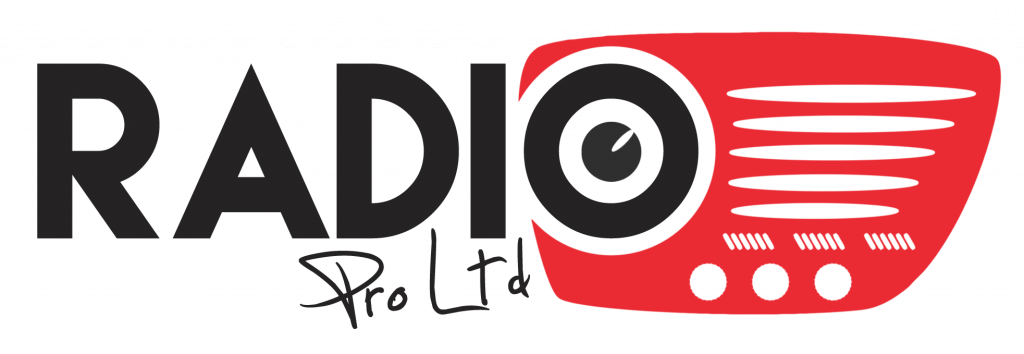By Paula Cohen, RadioPRO Board Member
Copyright licences are the unsung heroes of the music industry. They ensure that artists, composers, and performers receive the compensation they deserve for their work. Without these licences, the creative ecosystem would struggle to sustain itself. RadioPRO, a leading Collective Management Organisation (CMO), plays a pivotal role in managing copyright licences and providing vital funds to artists. This article explores the importance of copyright licences, the role of RadioPRO, and how these licences support artistic creation funds.
Understanding Copyright Licences
Copyright licences are legal agreements that grant permission to use copyrighted material under specific conditions. These licences are essential for various stakeholders in the music industry, including composers, performers, producers, and broadcasters. Here are some common types of copyright licences:
- Performance Licences: Allow the public performance of music in venues such as concerts, radio, and television.
- Mechanical Licences: Permit the reproduction of music on physical media such as CDs and vinyl, as well as digital downloads.
- Synchronization Licences: Enable the use of music in audiovisual works like films, TV shows, and commercials.
- Digital Licences: Cover the use of music on digital platforms, including streaming services and online radio.
These licences ensure that creators are compensated for the use of their work, allowing them to continue producing music.
Role of RadioPRO
RadioPRO is a prominent CMO that manages copyright and related rights on behalf of rightsholders in the music sector. It offers comprehensive services to composers, authors, performers, producers, publishers, and music ensembles worldwide, provided they are not represented by another CMO. RadioPRO’s responsibilities include:
- Licensing Music Use: Granting licences to users such as broadcasters, online platforms, and public venues.
- Collecting Royalties: Gathering payments from music users based on the terms of the licences.
- Distributing Royalties: Ensuring that rightsholders receive their fair share of the collected royalties.
By efficiently managing these tasks, RadioPRO provides crucial financial support to artists, enabling them to focus on their creative endeavors.
Tariffs and Licensing Fees
RadioPRO outlines specific tariffs and licensing fees for various music uses. These fees are structured to ensure fair compensation for rightsholders while being manageable for music users. Here are some key tariffs:
Private Radio Stations:
- Up to 20% music use: 0.1% of all income.
- 21-40% music use: 0.2% of all income.
- 41-60% music use: 0.3% of all income.
- 61-80% music use (minimum £400 annually): 0.4% of all income.
- Over 80% music use (minimum £400 annually): 0.5% of all income.
Public and Municipal Radio Stations:
- All stations: 0.15% on fee, subscription, or subsidies, and 0.2% on advertising income.
Online Use of Music:
- Non-commercial webcasting services: £15/year/channel (up to 2 channels, max 100 simultaneous streams).
- Commercial webcasting services: £50/year/channel for a max of 2 channels and yearly revenue under £2,500 (max 500 simultaneous streams).
- Background music on websites: 0.15% of all income (minimum £35 annually).
- Podcasting: 0.35% of all income (minimum £60 annually).
- Streaming video and music (not on demand): 1% of all income (minimum £60 annually).
- Streaming video on demand: 0.35% of all income (minimum £60 annually).
- Streaming music on demand: 1% of all income (minimum £70 annually).
- Downloads (all formats): 1.2% of all income (minimum £84 annually).
- Mobile apps: 0.6% of all income (minimum £35 annually).
- WebTV/IPTV: 0.22% of all income (minimum £0.12 per subscriber monthly).
TV Stations:
- Private TV stations: Annual fee of 0.2% of all income sources.
- Public and municipal TV stations: Annual fee of 0.15% on fees, subscriptions, or subsidies and 0.2% on advertising.
Public Performance Tariffs:
- Businesses where music is necessary (e.g., nightclubs, music venues): Annual license fee of 1% of gross income, with minimum fees based on floor area.
- Businesses for which music is essential (e.g., cafeterias, restaurants): Annual fee of 0.5% of gross income, with minimum amounts per year.
- Businesses for which music is useful (e.g., hotels, gyms): Annual flat fee according to floor area.
These detailed tariff structures ensure that all music users contribute fairly to the support of artists and creators, highlighting the importance of organized and transparent copyright licensing systems.
Impact on Artists and Creators
Copyright licences provide a crucial revenue stream for artists, ensuring they are compensated for the use of their work. This financial support enables artists to continue creating, contributing to a vibrant and diverse music industry. RadioPRO supports its members by efficiently managing the collection and distribution of royalties, which is vital for the sustainability of the creative sector.
Consider a musician whose songs are played on various radio stations. Through RadioPRO’s licensing agreements, each play generates a small royalty payment. While a single play might contribute a tiny amount, the cumulative effect across multiple stations and platforms results in significant earnings for the artist. This system ensures that creators receive ongoing support, allowing them to invest in new projects and maintain their careers.
Case Studies
Case Study 1: Private Radio Station A private radio station contributes 0.3% of its income to copyright fees, which are then distributed to various artists and creators. This structure ensures that even small contributions accumulate to provide substantial support for the music community. For instance, a radio station with an annual income of £500,000 would pay £1,500 in licensing fees. These fees are collected by RadioPRO and distributed to the rightsholders, ensuring that the artists whose music is played on the station receive their fair share.
Case Study 2: Online Music Streaming Service An online music streaming service pays 1% of its income as licensing fees. This fee supports a wide range of artists, from independent musicians to major label artists, highlighting the importance of digital platforms in the modern music industry. For example, a streaming service with an annual revenue of £1,000,000 would contribute £10,000 in licensing fees. These funds are crucial for artists, especially in an era where physical sales have declined, and digital revenue has become a primary source of income.
Challenges and Solutions
The music industry faces several challenges related to copyright licensing. Artists and music users often struggle with navigating complex licensing agreements and ensuring timely royalty payments. RadioPRO addresses these issues by providing clear guidelines, transparent fee structures, and efficient royalty distribution systems. Here are some common challenges and solutions:
- Complex Licensing Agreements:
- Challenge: Understanding and complying with various licensing requirements can be daunting for music users.
- Solution: RadioPRO offers detailed information and support to help users navigate these agreements. Their website provides comprehensive guidelines and FAQs to assist users in understanding their obligations.
- Timely Royalty Payments:
- Challenge: Ensuring that artists receive their royalties promptly is a significant concern.
- Solution: RadioPRO employs efficient royalty collection and distribution systems to minimize delays. Regular audits and transparent reporting ensure that rightsholders receive their due payments on time.
- Fair Compensation:
- Challenge: Ensuring that all rightsholders are fairly compensated for the use of their work.
- Solution: RadioPRO’s tariff structures are designed to balance the needs of both rightsholders and music users. By setting minimum fees and percentage-based tariffs, they ensure that compensation is fair and proportionate to the use of the music.
Future of Copyright Licensing in the Music Industry
The music industry is evolving rapidly, with technology and digital platforms playing an increasingly important role. Future developments in copyright licensing are likely to focus on adapting to these changes, ensuring that artists continue to receive fair compensation in an ever-changing landscape. Innovations such as blockchain technology and AI-driven royalty management systems hold promise for enhancing transparency and efficiency in the licensing process.
Blockchain Technology: Blockchain offers a decentralized and transparent way to manage copyright information and royalty payments. By recording every use of a piece of music on a blockchain, all parties can have a clear and immutable record of its usage. This can significantly reduce disputes over royalties and ensure that artists are paid accurately and promptly.
AI-Driven Royalty Management: Artificial intelligence can analyze vast amounts of data to track music usage across various platforms and calculate royalties. This can streamline the process, reduce administrative costs, and increase accuracy in royalty payments. AI can also help identify unauthorized uses of music, enabling rightsholders to take action and protect their interests.
Digital Platforms and Streaming Services: As streaming continues to dominate the music consumption landscape, licensing models must adapt to ensure that artists are fairly compensated. This includes negotiating fairer deals with streaming services and exploring new revenue streams such as live streaming and virtual performances.
Conclusion
Copyright licences are vital for supporting artistic creation funds, providing essential financial support to artists and ensuring the legal use of copyrighted material. Organizations like RadioPRO play a critical role in managing these licences, contributing to a thriving and sustainable music industry. By understanding and supporting copyright licensing, we can help foster a creative environment where artists can continue to produce and share their work.
As the music industry continues to evolve, it is crucial to adapt and innovate to ensure that copyright licensing remains effective and beneficial for all parties involved. With the support of organizations like RadioPRO, artists can thrive, and the music industry can continue to flourish.

